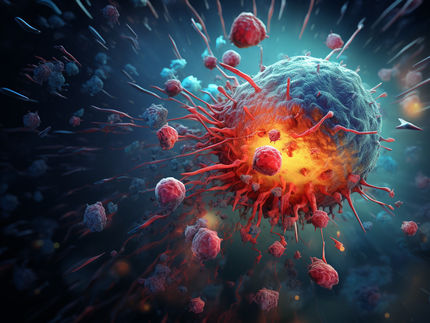BioMed X Institute launches new cancer collaboration with Daiichi Sankyo
Call for proposals from researchers around the world to take part in this ambitious project
Advertisement
BioMed X, an independent biomedical research institute based in Heidelberg, Germany, announced the launch of a new collaboration with Daiichi Sankyo Co., Ltd., a global pharmaceutical company headquartered in Japan. This collaboration marks the start of a cutting-edge initiative to explore innovative approaches in cancer treatment using multi-specific biologics. The new project, entitled “New Strategies for Targeting of Solid Tumors with Multi-Specific Biologics (MTT; Multi-Specific Targeting of Tumors)”, will be hosted at the BioMed X Institute in Heidelberg.
The goal of this partnership is to leverage the latest advances in multi-functional biologics, such as bi- and tri-specific antibodies, to develop new therapies that can engage multiple targets simultaneously within the tumor microenvironment. These next-generation therapies aim to overcome the limitations of conventional treatments by leveraging synergistic effects of different antitumor signaling pathways and mechanisms by manipulating proximity of multiple targets.
Call for Research Proposals
The BioMed X Institute and Daiichi Sankyo are inviting proposals from researchers around the world to participate in this ambitious project.
The MTT initiative focuses on the following key research challenges:
- Development of new therapeutic concepts for bi- or multi-specific biologics for new extracellular or intracellular target combinations which could be exploited for the treatment of solid tumors.
- Exploration, identification, and functional validation of promising new target combinations in vitro and in vivo.
- Development of an elegant in vitro assay system for functional assessment of novel target combinations.
Researchers are encouraged to submit proposals that demonstrate originality, especially those supported by preliminary experimental data or utilizing state-of-the-art machine learning tools. The call is open to projects targeting any solid tumor indication. However, classical immune cell engagers, combination therapies, and other modalities outside peptides or proteins (e.g., small molecules, nucleic acids, gene or cell therapies) are not within the scope of this project.
The new research team will join seven other research groups at the BioMed X Institute in Heidelberg, Germany. Researchers who are interested in becoming part of this new research group are invited to respond to this international call for application by submitting a project proposal via the BioMed X Career Space before March 9, 2025.
Christian Tidona, Founder and Managing Director of the BioMed X Institute, commented: “Partnering with Daiichi Sankyo on the MTT project allows us to expand our research in oncology, focusing on next-generation biologics that can truly make a difference for cancer patients. This collaboration exemplifies our commitment to pioneering innovative therapeutic approaches.”
Other news from the department research and development
Most read news
More news from our other portals
See the theme worlds for related content
Topic world Antibodies
Antibodies are specialized molecules of our immune system that can specifically recognize and neutralize pathogens or foreign substances. Antibody research in biotech and pharma has recognized this natural defense potential and is working intensively to make it therapeutically useful. From monoclonal antibodies used against cancer or autoimmune diseases to antibody-drug conjugates that specifically transport drugs to disease cells - the possibilities are enormous

Topic world Antibodies
Antibodies are specialized molecules of our immune system that can specifically recognize and neutralize pathogens or foreign substances. Antibody research in biotech and pharma has recognized this natural defense potential and is working intensively to make it therapeutically useful. From monoclonal antibodies used against cancer or autoimmune diseases to antibody-drug conjugates that specifically transport drugs to disease cells - the possibilities are enormous






















































